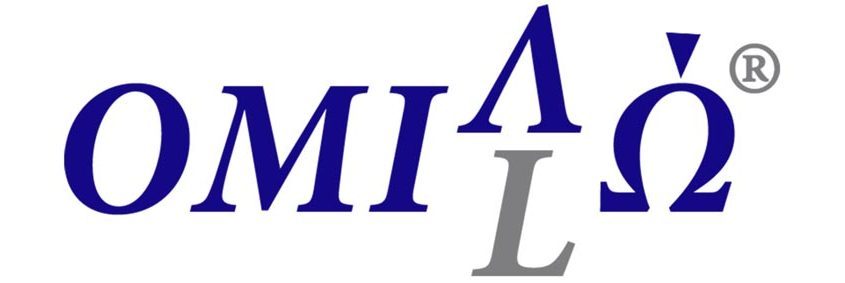Greek etymology, is something we often use in our Greek lessons.
But this time, we will use it to explain you a bit more about why we chose the name “omilo” or ” ομιλώ”.
“Omilo Greek Language and Culture” was founded in 1996, so we are around for many years 🙂 Even longer than “google” ! 🙂
And …in case you were wondering…
“Omilo” or “ομιλώ¨, actually is a verb and means “I speak”!
Because at Omilo, we really try to focus on “speaking Greek”!
If you already know some Greek, then you now might wonder: Why “omilo” (ομιλώ) and not “milao” (μιλάω)?
Well, both verbs mean “I speak”, but the latter is more used in the everyday Greek language, so you will hear it more.
Careful; when you pronounce “omilo”, make sure you stress the LAST O, since also there is the stress in the verb; ομιλώ
First, a bit of Greek etymology!
Over the years, we realized that many students do not realize that “omilo” is actually an existing verb, and others pronounce the name wrongly, so here some explanations.
In 1996, Maya and Dimitris Andreadis founded Omilo, and chose this name since it comes from the ancient verb «ὁμιλῶ»
This verb, in ancient times, meant “to associate, to keep company with somebody”, but also “to be a student or to frequent, to hang out”.
Over the years the meaning of the word changed and got another definition;
“to express myself in oral speech, to discuss”.
In our days, we mostly use the simple form “milao” (μιλάω) in modern Greek, but we can still find the older form “omilo” in official or standard phrases.
Some examples;
«μην ομιλείτε στον οδηγό» (min omilite ston odigo) = don’t speak to the driver. It’s a phrase that we can read on bus signs.
«ομιλείτε ελληνικά;» (omilite ellinika?) = do you speak Greek? -It was the title of a show about the Greek language.
«ομιλώ από καθέδρας» (omilo apo kathedras) = to express myself dogmatically, with the prestige that my place gives to me.
The form «ομιλώ» survives also in other words
Examples;
«ομιλητής» = speaker.
E.g. Το κοινό άκουγε με προσοχή τον ομιλητή. = the audience was listening carefully to the speaker.
«ομιλία» = speech.
E.g. Δεν ήρθε πολύς κόσμος στην προεκλογική του ομιλία. = Very few people came to his election speech.
«συνομιλία» =conversation.
E.g. Χαίρομαι που είχα μια σύντομη συνομιλία μαζί του. = I am glad that Ιhad a short conversation with him.
«συνομιλητής» =interlocutor.
E.g. Πρέπει να σέβεσαι τους συνομιλητές σου και να μην τους διακόπτεις. = You have to respect your interlocutors and not to interrupt them.
«ομιλητικός» = communicative, talkative.
E.g. Σήμερα δεν είσαι πολύ ομιλητικός, έγινε κάτι;= Today you are not very talkative, is something wrong?
++++++++++++++++++++++++++
The conjugations of the verb – ” I speak”
As you all know, learning to speak Greek, is not possible without verbs, and knowing how to conjugate the verbs
So, we made some videos for you
Click here, and learn how to conjugate the verb “μιλάω”
Click here and learn how to conjugate the verb “μπορώ”.
You can conjugate “ομιλώ”, exactly as the verb “mporo – μπορώ”
So, when you pronounce “omilo”, make sure you stress the LAST O (and not the first O, as most students do)
Listen to the pronunciation of the conjugation in the video.
and see the conjugation below
Εγώ ομιλ-ώ I speak
Εσύ ομιλ-είς You speak
Αυτός,ή,ό ομιλ-εί He/she/it speaks
Εμείς ομιλ-ούμε We speak
Εσείς ομιλ-είτε You speak
Αυτοί,ές,ά ομιλ -ούν They speak
If you want to learn more Greek verbs of category A, B1 and B2, then how to conjugate them,
then take a look at this useful eBooks
Why many Greeks automatically say “όμιλος” in stead of “ομιλώ”?
After Omilo was founded, we realized many Greeks never pronounced it correctly, since they got confused with the other word “omilos”.
Indeed, a derivative of the ancient verb “ομιλώ” was the word «ὃμιλος», which is still in use in modern Greek and means “club, association”.
For example;
«αθλητικός όμιλος» (athlitikos omilos) =sport club,
«ιππικός όμιλος» (ippikos omilos) = equestrian club – horseback riding,
«όμιλος επιχειρήσεων» (omilos epihiriseon) = group of companies.
Therefore, many Greek native speakers are often confused, and think our school is called ‘Ομιλος. (the club, the association)
Also, when you say “όμιλος” in its accusative form, it loses the final “s”, and becomes “(στον) όμιλο”. (at the club..)
So the word Omilos (όμιλος), is indeed very similar in writing and pronunciation with “ομιλώ”,
but the stress is on the first o, and it has a totally different meaning; “club/association/union”.
Although over the last 27 years, it feels as Omilo has become “club of many Greek language learners from all over the world”,
and maybe the name “όμιλος” make sense now, we still prefer our original name “ομιλώ – Omilo! 🙂
Why?
Well, because we simply love “to speak and use Greek in an active form”, and
we know that “without verbs, you can not speak ” 🙂
The video has Greek subtitles and under this video, you find the English translation :
Hello!
Now that our name is explained, maybe you are curious what Omilo does exactly?
Just visit our website, or subscribe to our “Monthly Dose of Sunshine”,
and you will get monthly updates about Omilo, while learning about Greece and the Greek Language,
with interesting articles. (in Greek and English)
Click here to subscribe, it is 100% free! (and of course, you can unsubscribe at any moment!)










